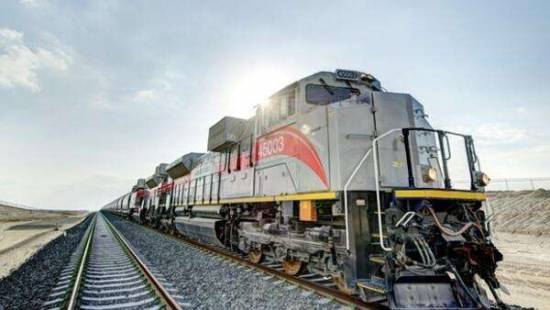Gulf countries have begun building their own networks within the GCC-wide railway. A top UAE minister in Abu Dhabi said the GCC Railway network can soon be interconnected with Arab countries as well.
Consequently, passengers can dream of travelling by train between Kuwait City and Muscat via Abu Dhabi.
The Minister of Energy and Infrastructure of the UAE, Suhail Al Mazrouei, opened the 16th edition of Middle East Rail by underlining that the GCC countries are currently building their railway networks.
"It is not an abstraction. The process is in progress right now. The minister stated in his keynote address at ADNEC that each country is building its own network.
It is possible that the GCC Railway could be expanded in the future to interconnect Arab countries.
In the GCC, we want to continue this dream of connecting our countries with our state-of-the-art railway network, allowing our citizens to travel throughout the GCC. Our brothers in the GCC are working with us so that, in the future, the GCC is able to establish an interconnection with Arab countries and broaden its network. In the future, this will enable us to reduce emissions while also controlling costs."
Sheikh Khalifa bin Zayed Al Nahyan took a keen interest in developing the country's rail network, according to Al Mazrouei.
It was His Highness Sheikh Khalifa bin Zayed Al Nahyan who built the emirates into what they are today while establishing the most exciting energy, transport, and infrastructure facilities. At the same time, however, we are extremely proud of His Highness Sheikh Mohamed bin Zayed Al Nahyan for the presidency of the UAE. "His Highness is also committed to sustainability, which is why he enabled the railway construction in the UAE."
In an interview, the minister said the UAE's plan to reduce carbon dioxide emissions by 70 percent by 2050 will include building a reliable, efficient, and sustainable Etihad Rail network. The soaring cost of energy, including rail fuel, is concerning, he said, and countries must ensure effectiveness and sustainability.
"Efficiency, sustainability, and reducing emissions are some of the challenges facing the world today. In today's world, all countries are trying to find ways to reduce their use of resources and become more efficient as well as secure their supply. Here in the Gulf Cooperation Council and, especially in the Emirates, we have found that building or using a railroad network is a reliable option."
The Ministry of Energy and Infrastructure is developing the UAE's smart mobility network, he said.
"It will enable our country to be ready not only for a state-of-the-art rail network, but also for autonomous vehicles. We will have the right infrastructure, we will reduce emissions, we will electrify a part of our transportation system, and we will be ready for other technologies such as hydrogen-fuel cell cars."
As a result of the completion of Etihad Rail, the minister hoped there would be fewer road accidents as well, apart from environmental benefits.
Once the network is finished, Al Mazrouei hopes to eliminate unnecessary vehicles from the roads in order to increase the lifespan of our roads and to lessen the number of vehicle accidents and fatalities./agencies


